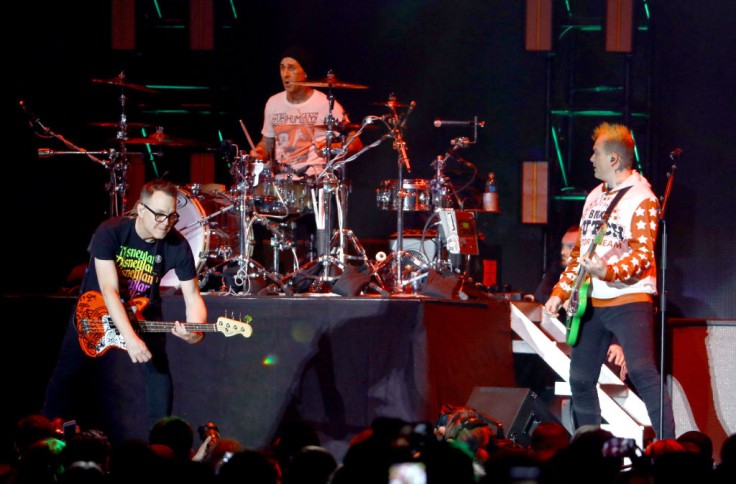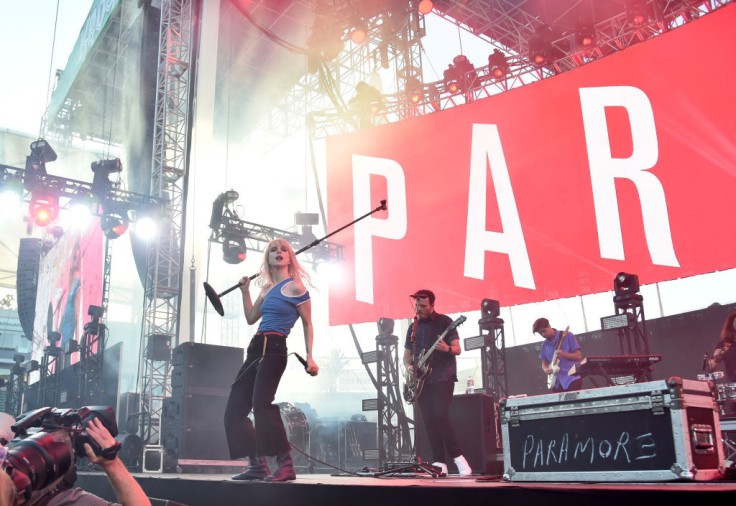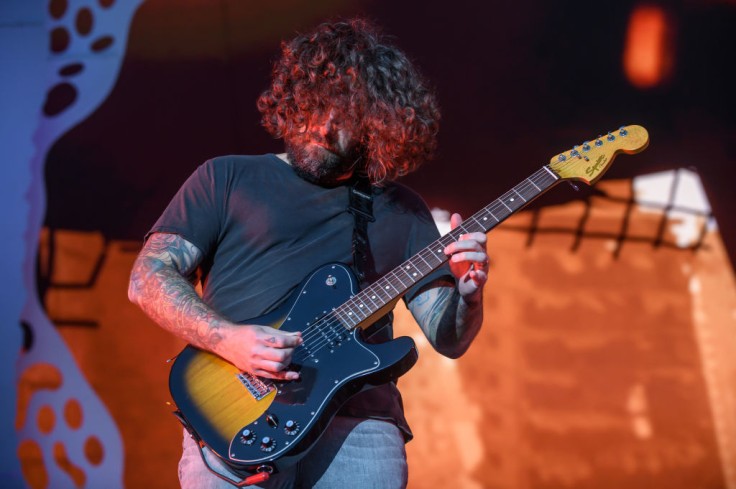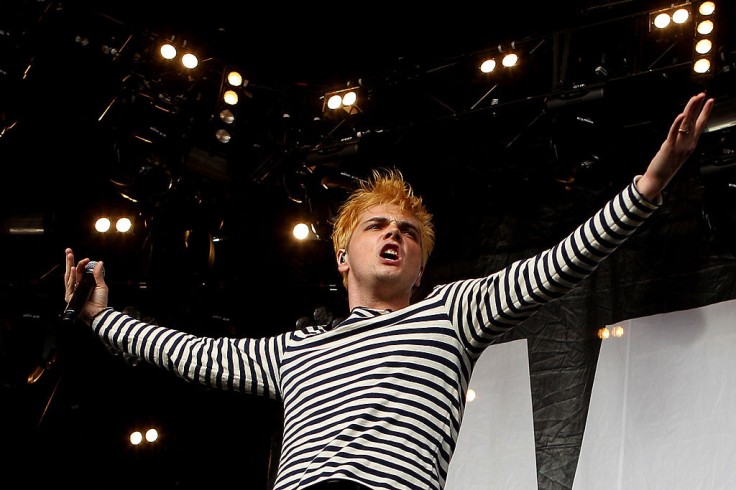
Pop-punk is back, and that leaves us asking ourselves one question: how are we all doing?
From Avril Lavigne to Fall Out Boy, it is undeniable that pop-punk is an incredibly catchy genre. The exciting beats and gripping sounds leave fans wanting more after they hear the first, "Oh," of, I Write of Sins Not Tragedies. I am a pop-punk fan, through and through. We grew up listening to the driving, cutting sounds. Let us tell you: they sure made recess edgy.
Now, many years away from the original phenomenon, we see the sound coming back. Newer pop-punk artists are plunging head first into the exciting genre while others are making widely celebrated comebacks. The question is why?
Aside from the songs being catchy, there can be no denying that there is a certain rage that fuels each pop-punk anthem– well, maybe more than rage. Pop-punk capitalizes on pure, raw emotion. While may genres explore emotion through a more poetic or compositional lens, the emotive sound puts its proverbial heart on its sleeve.
But why is the world finding themselves jamming out to Paramore again now (aside from the fact that Paramore is undeniably sensational!) The pop-punk sound was so indicative of the early 2000s. Why are people returning to this sound with such fervor in the 2020s?

The answer can be found (as the answers to most societal questions can) in history.
A quick look at the global societal landscape in both the early 2000s and the modern day, it is no surprise that these are the timeline arenas in which pop-punk has seen its greatest heights. The tragedy of 9/11 and the effect of the Covid-19 pandemic placed the world in a similar state of repressed, inexpressible emotions that found an avenue through pop-punk.
9/11 let the world confused and upset. It was a tragedy of shocking and immense proportions. With any such traumatic shock, it is understandable that people did not know how to truly process their feelings. They found themselves facing a horrific event they had not anticipated. When trauma hits the world on a widespread scale, leaving very few with the capability to entirely process their emotions, words are often not enough. No words right or large enough to cope with the massive tragedy that struck.
However, humans must find a way to process in order to continue. If language is not enough, they will turn to something else: such as music.
Pop-punk music is expressive. It is emotive. It leaves nothing unsaid. In the early 2000s, when people were dealing with the aftermath of an entirely traumatic event, pop-punk gave them an avenue through which to process that didn't require words. It could play in the background of their lives, allowing people to work through things on a subconscious level.
The rise in popularity of the sound meant not only that people were finding solace in the music, but that, in their own way, they were finding community.

The genre has held this same power in the developing aftermath of the Covid-19 pandemic.
When the pandemic began in March of 2020, the world was forced inside. On a global scale, this was the largest, most life changing event to have taken place during all of our life-times. While, in the face of most incidents of this caliber, people come together, the Covid-19 pandemic was unique in that it forced people to stay apart. We felt distant and disconnected from other human beings. This is not natural.
We spent years unable to fully share with other people– we lost the basic, natural, fundamentals of human connection as we instead sat alone. We bottled our emotions and kept them to ourselves. This is not because we wanted to but rather because there was quite literally no one around that we could share with.
Through our time in the shut down, people began to compress like springs. That is what will happen if you keep things inside for too long. As we (and by, "we," we are referring to the global human population) were literally kept inside for too long, we compressed ourselves down, ready to spring forth.
Now that we are back, we are ready to spring forth. However, nothing seems to be enough. After keeping everything locked down for so long, it feels like there is emotional outpouring that needs to be caught up on. Our minds never expected to have to process this. Therefore, we are left feeling like we have emotions that we do not understand where to put.
Studies have found that edgy music has healing powers.
According to an article on The Guardian, a study was done by The University of Queensland which showed that edgy music actually promotes calmness in listeners rather than tonally similar feelings of angst and rage. The study showed that:
"The music helped them explore the full gamut of emotion they felt, but also left them feeling more active and inspired...Results showed levels of hostility, irritability and stress decreased after music was introduced, and the most significant change reported was the level of inspiration they felt."
After a time when emotional processing undoubtedly became stunted, people are turning to the pop-punk sound to help them work through feelings that they would not otherwise be able to talk about.

Pop-punk is the Greek Theatre of modern music.
Ancient Grecian Theatre was used to encourage political discourse and explore the expanse of human emotions. It was the birthplace of catharsis as we understand it today. The concept of catharsis began with Aristotle. According to an article on Hellinca World:
"The term in drama refers to a sudden emotional breakdown or climax that constitutes overwhelming feelings of great sorrow, pity, laughter or any extreme change in emotion that results in the restoration, renewal and revitalization for living...Using the term 'Catharsis' to refer to a form of emotional cleansing was first done by the Greek philosopher Aristotle in his work Poetics...In contemporary aesthetics catharsis may also refer to any emptying of emotion experienced by an audience in relation to drama."
While it served a variety of purposes, Greek Theatre was a means of bringing the community through the height of emotion. People off of the stage were not able to emote in such expressive ways. Watching actors reach the heights and depths of true, dramatic feeling allowed people to process by watching others express emotion on their behalf.
This is the function that pop-punk serves today.
Pop-punk shows unbridled emotions– emotions often considered too dark or too powerful for every day life. Through its emotion, rage, and passionate expression of emotions sets to music what we are all having trouble putting to words. It evokes a feeling, and it helps us process.

So it seems like...
In answer to the question, "How are we all feeling?," the answer is actually pretty dang good. While the last few years have been a complicated swarm of chaos that seems to get infinitely more COMPLICATED (Avril Lavigne pun very much intended) every day, the rise in the popularity of pop-punk actually proves that we are all working to get better.
Now, off to go listen to the re-recording of Avril Lavigne's debut album, because we believe in self care.
© 2025 MusicTimes.com All rights reserved. Do not reproduce without permission.







